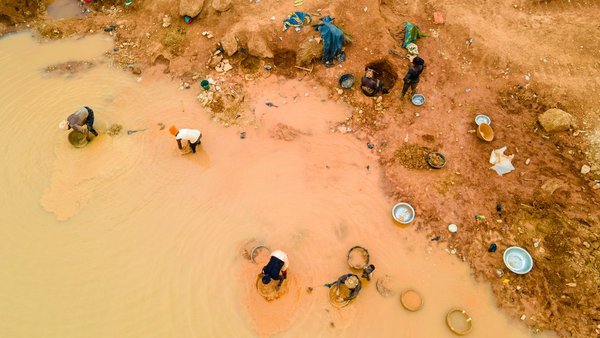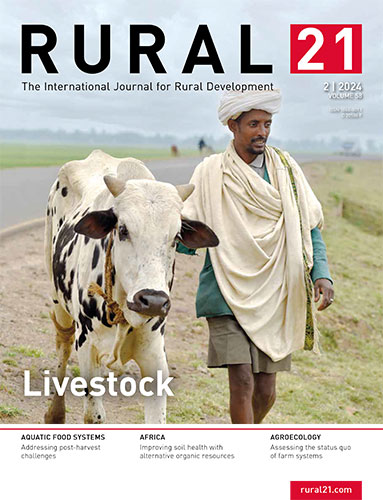- Share this article
- Subscribe to our newsletter
New approach to tackle challenges in small-scale mining
In September 2024, the World Bank unveiled a bold new vision to unlock the full potential of artisanal and small-scale mining (ASM) to drive economic growth, boost development and reduce poverty in developing countries. The sector, which supplies minerals essential for the global clean energy transition, continues to grapple with significant challenges, including environmental harm, gender inequality, human rights, and health and safety risks.
As of 2024, those engaged directly and indirectly in the sector’s labour value chain make up more than 225 million people working across Latin and South America, Africa and Asia. Today, ASM is the predominant nonfarm rural income in many parts of the world. Domestic economic, environmental and social drivers, including limited job opportunities in rural environments and, more recently, climate change impacts on farming and other nature-based livelihoods are leading to increased migration into nonfarm economic opportunities.
The World Bank's new approach champions the professionalisation and social well-being of artisanal and small-scale miners, urging governments to play a leading role in regulating and supporting sustainable ASM practices to achieve national growth targets.
By fostering multistakeholder partnerships and leveraging the strengths of various development actors—including governments, multilateral institutions, the private sector and civil society – the World Bank's new approach underscores a new way of working – one that is more participatory, adaptive, and centred around the needs of ASM actors and their communities.
It also calls for a renewed focus on government leadership in regulating and fostering ASM devel-opment, advocating for long-term investments and partnerships that will help build the necessary infrastructure for a well-regulated and legal ASM sector.
(The World Bank/ile)
Read more on the World Bank website




Add a comment
Be the First to Comment